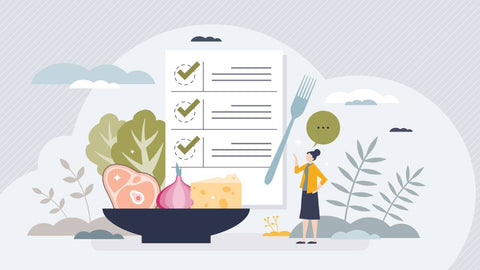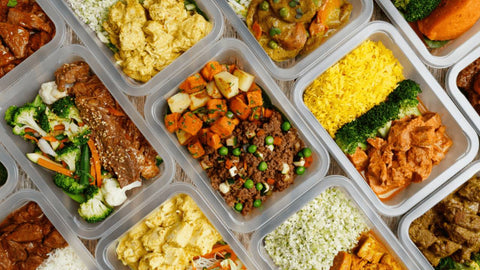Dental health isn't just brushing your teeth
You are what you eat- Tips for a healthier smile

It’s Dental Health Week (August 5th-11) and this year it’s all about finding out how your oral health is tracking. We thought it was a great opportunity to ask popular local dentist, Dr David Bassal, Practice Principal of Warnervale Dental to contribute some quick insights into how nutrition and what we put into our mouth can impact on our oral health and wellbeing.
Everything you eat and drink can have a major effect on the health of your teeth and gums, particularly whether you develop tooth decay, a diet related disease which is caused when the sugars in the food and drinks you eat are taken up by bacteria; these in turn produce the acids that can attack the outer layer of tooth enamel.
To ensure that your diet doesn't negatively affect your teeth, there's a few key things to keep in mind:
Drink lots of water
We are blessed to live in Australia and have access to free, fluoridated water. This is one of the easiest and most beneficial ways to help prevent tooth decay. If you choose water over anything else, and regularly sip it throughout the day, you're going a long way to making real difference to the health of your teeth and your whole body.
Don’t brush straight after eating
It is NOT indicated to brush your teeth after you eat! Sugary or acidic diets mean that brushing teeth directly after eating can have an abrasive/caustic effect as we wear the acids into the teeth accelerating enamel breakdown. The correct method is to buffer saliva by first rinsing out after every meal - in order to stabilise or increase the PH of the mouth and wait at least half hour before brushing. This is particularly important when using supplements such as pre workouts and protein supplements.
Limit snacking between meals
A key factor in helping to prevent tooth decay is saliva, which provides a natural defence mechanism within the mouth by neutralising the acids produced by bacteria. However, if you snack frequently between meals, your saliva may not get a chance to work properly, meaning your teeth don't get a break from the acid attacks that occur every time you consume sugary foods or drinks. Try to limit sugary treats to mealtimes, rather than between meals.
Include calcium
Calcium-rich foods, such as low-fat or fat-free milk, yogurt and cheese, fortified soy drinks and tofu, canned salmon, almonds and dark green leafy vegetables help promote strong teeth and bones.
Eat nutrient-rich foods
Your teeth need nutrients to stay strong, white, and cavity-free. For good dental health, it’s important to eat a variety of foods from each of the five major food groups. This ensures that your teeth get the essential nutrients they need. Eating a healthy and balanced diet is a key factor for a healthier smile, the team at Activate Foods ensure that all their meals are of high nutritional value and are approved and endorsed by Accredited Practising Dietitian, Nicole Saliba from Eatsense.
Less sugar
Sugary foods that are sticky and chewy take longer to be cleared from the mouth and can therefore increase your risk of tooth decay.
Vitamin C
Vitamin C promotes gum health, so eat plenty of citrus fruits, tomatoes, broccoli, potatoes and spinach.
Minimise the booze
A glass here or there can be all right, but too much of a good thing can damage your teeth. Since alcohol is acidic, it can wear out your teeth and red wine’s potent colour can lead to stains that can only be treated professionally by a dentist.
Now that you know what you can eat to keep your smile bright and healthy, go ahead and enjoy – just be sure to brush and floss afterwards, and schedule your regular appointment with your dentist.
Find out more
https://www.warnervaledental.com.au/
Resources:


